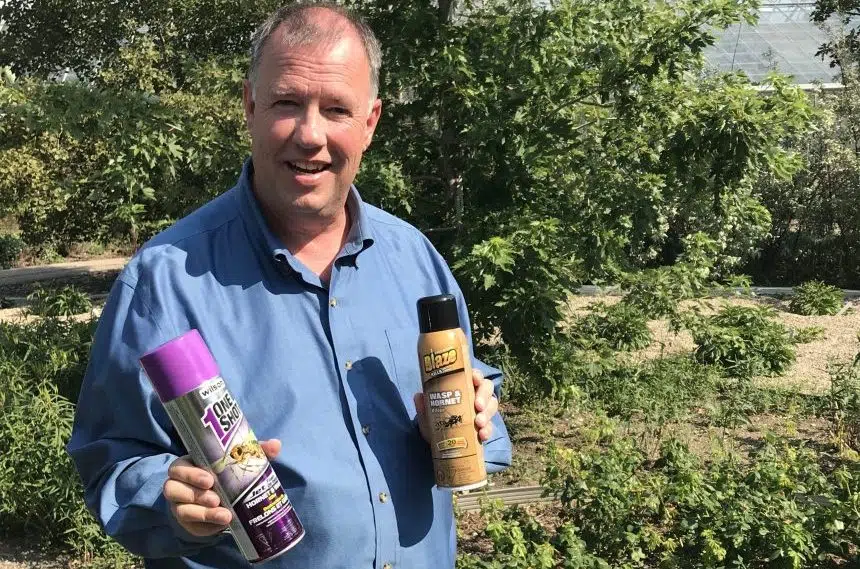Where bees can be fat bumbling friends which pollinate flowers and help crops grow, many people run at the sight of a wasp – and it’s wasp season again in Regina.
Russell Eirich, forestry, pest control, and horticulture manager for the City of Regina, explained the wasp problem usually starts to get worse after the August long weekend because the sun is beating down on the nests, and they aren’t producing as much food for the mature wasps
“All the wasps themselves are getting more aggressive to us because they’re going after our foods that we like to eat, our sugary drinks that we like to have, our raw meats and things like that.”
So Eirich said the best thing to do to keep them away is to change habits: things like covering sugary drinks and alcohol outside, cleaning spills quickly and keeping raw meat inside as much as possible.
Eirich said, if a person is looking not to get stung, they need to stay calm when wasps do come around. He said don’t flail around, that will make them more aggressive and could make them secrete a hormone which brings others wasps to where they are.
Wasps aren’t all bad though — Eirich said they can be useful.
“Wasps are actually a predator insect on some of the insects that affect your garden – so caterpillars, leaf beetles, those sorts of things that’ll attack your gardens.”
There are a few different options to get rid of the bugs. Homeowners can call an exterminator who may use a special kind of dust to get rid of them. But there are also foams and liquids that can be used to close up a nest and kill the wasps.
It’s wasp season (don’t look so excited). @CityofRegina’s Russell Eirich describes a couple ways to get rid of them pic.twitter.com/80DJ1375yJ
— Lisa Schick (@LMSchickler) August 7, 2018
Also an option: a wasp trap pic.twitter.com/Ev0R7EpeGg
— Lisa Schick (@LMSchickler) August 7, 2018
Eirich said the best time to deal with the nests is earlier in the morning.
“What we’re trying to do is to treat the nests where you’re not going to get stung. So if you do it in the cool of the day, the wasps are a little bit slower and it’s a bit of safety thing for yourself.”
Eirich said wasps season tends to peak around the last week of August or first week of September, and then starts to taper off as the weather cools down.











